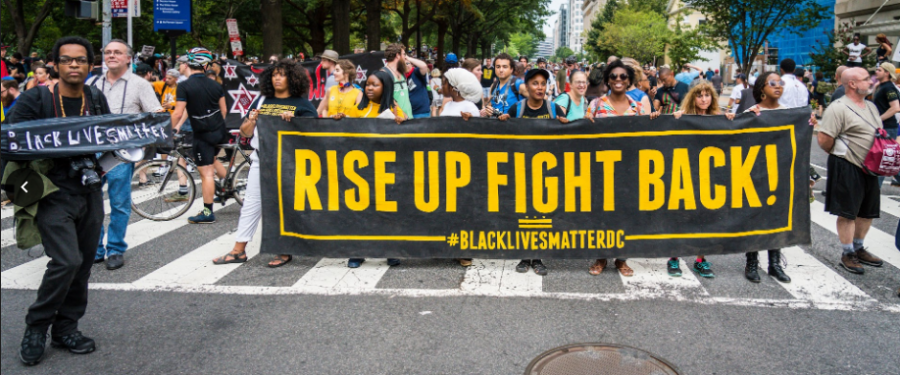With over six million confirmed COVID-19 cases and over 400,000 deaths worldwide, participating in the Black Lives Matter protests for racial equality during the coronavirus pandemic can be daunting.
Thousands have taken to the streets to protest after the death of George Floyd. Large gatherings such as protests pose a health risk to all who attend but, that’s a risk many are willing to take in hopes their cries will bring forth change.
Others are left at home wondering how they can help without going out and risking being exposed to the coronavirus. Here’s what you can do from home to support protestors and the fight for racial equality:
Donate to organizations that support racial equality
By donating to these organizations, you’re allowing them to hold more protests and achieve change across the country. The mission statement for BLM is to “eradicate white supremacy and build local power to intervene in violence inflicted on black communities by the state and vigilantes.” Other organizations who are also working to end violence against black communities are Black Visions Collective and the Loveland Foundation.
Donate to bail funds
Hundreds of people are being detained and arrested for protesting across the United States, many of which cannot afford to pay their bail. Bail funds collect donations that will then be used to post bail for protestors that have been arrested. The Community Justice Exchange offers a directory of bail funds you can find close to you.
Contact your representatives
Being that 2020 is an election year, now is a perfect time to ask representatives to push forth policies you’d like to be implemented in your neighborhood, town or city. To help black communities, it might be worth asking your representatives to advocate for nondiscriminatory and antiracist policies. The United States House of Representatives website offers a directory that allows you to find your representatives and their contact information.
Listen and Learn
Those of us who are able to say they’ve never been discriminated against because of the color of their skin are privileged. One important thing that can be done to help fight racism is to listen to those who face it every day. Several town hall events are announced daily that are meant to open discussions between the black community and its allies. Finding one can be as simple as searching “Black Lives Matter Town Hall” on Facebook.
Another important tool is education. At CUNY, we have access to thousands of books, journals and essays by black authors and professors that will help us understand the systematic racism in our country.
One essay by Baruch College professor Regina Bernard, which is titled, “Why We Can’t Breathe,” is a powerful account of George Floyd’s death and the historical context of why his death is so impactful. Other books available in the Newman Library’s website are “The New Jim Crow: Mass Incarceration in the Age of Colorblindness” by Michelle Alexander and “How To Be an Antiracist” by Ibram Kendi.
Vote
Voters now have the option of voting by mail to avoid crowding at polling sites. Vote.org offers the option of verifying your registration, voting applications for those who are not yet registered, applications for absentee ballots and a polling site locator.






